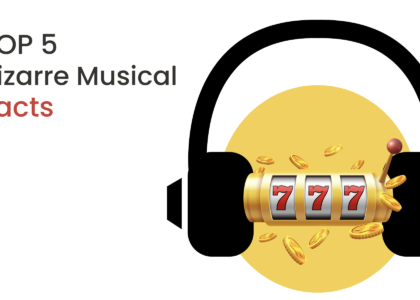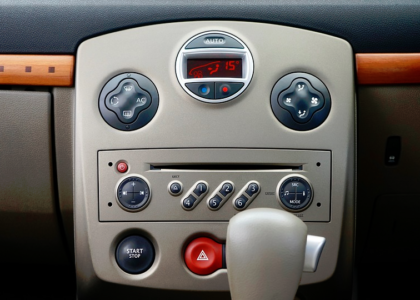Welcome to the world of music technology, where innovation and creativity come together to revolutionize the way we experience and create music. In this blog post, we’ll explore the latest music technologies and trends that are shaping the industry, and how these advancements can enhance your listening experience. So, get ready to dive into a world of high-volume keywords and cutting-edge discoveries!
Table of Contents
- Virtual Reality Concerts
- Artificial Intelligence in Music Production
- Blockchain and Music
- 3D Audio and Immersive Soundscapes
- Smart Instruments
Virtual Reality Concerts
Imagine attending a live concert without having to leave your living room! Virtual Reality (VR) concerts are becoming increasingly popular, offering a fully immersive experience for music lovers. With the help of VR headsets and 360-degree cameras, you can now enjoy a front-row seat to your favorite artist’s performance, no matter where you are.
Key benefits of VR concerts:
- Accessibility: Attend concerts from the comfort of your home.
- Cost-effective: Save on travel and ticket expenses.
- Eco-friendly: Reduce your carbon footprint by avoiding travel.
Artificial Intelligence in Music Production
Artificial Intelligence (AI) is making waves in the music industry by transforming the way music is produced, composed, and even performed. AI-powered algorithms can analyze existing music patterns and create new compositions, opening up a world of possibilities for musicians and producers.
Innovative AI applications in music production:
- AI-generated music: Tools like Amper Music and AIVA utilize AI to create original compositions.
- AI-assisted songwriting: Platforms such as Endel help musicians develop new melodies and chord progressions.
- AI-powered mastering: Services like LANDR use AI to optimize the sound quality of tracks.
Blockchain and Music
Blockchain technology is changing the music industry by offering a secure and transparent way to track royalties, rights, and ownership of music. This decentralized approach empowers musicians, giving them more control over their work and ensuring fair compensation.
How blockchain benefits the music industry:
- Transparent royalty tracking: Instantly trace and verify royalty payments.
- Music rights management: Simplify copyright and licensing processes.
- Crowdfunding and fan engagement: Foster direct connections between artists and fans.
3D Audio and Immersive Soundscapes
The emergence of 3D audio technology has revolutionized the listening experience, creating immersive soundscapes that transport you right into the heart of the music. With the help of binaural recording techniques and object-based audio, 3D audio delivers a lifelike, three-dimensional sound experience.
Popular 3D audio formats:
- Dolby Atmos Music: Experience your favorite tracks with a new level of depth and detail.
- Sony 360 Reality Audio: Immerse yourself in music with this innovative spatial audio technology.
Smart Instruments
Smart instruments are redefining the way we create and learn music. These innovative devices combine traditional instruments with advanced technology to offer a more interactive and engaging experience for musicians of all skill levels.
Examples of smart instruments:
- Artiphon INSTRUMENT 1: A versatile MIDI controller that can mimic various instruments.
- *ROLI Seaboard*: A touch-responsive keyboard offering unprecedented expressive control.
Benefits of using smart instruments:
- Enhanced creativity: Experiment with new sounds and techniques.
- Efficient learning: Access tutorials and interactive lessons to improve your skills.
- Streamlined workflow: Integrate with music production software for seamless collaboration.
The Rise of Music Streaming Services and Playlists
Another significant development in the music industry is the exponential growth of music streaming services. Platforms like Spotify, Apple Music, Tidal, and Amazon Music have made it easier than ever to access millions of songs and discover new artists.
Key advantages of music streaming services:
- Vast music libraries: Explore millions of tracks from various genres and eras.
- Personalized recommendations: Discover new music based on your listening habits.
- Offline listening: Download songs for offline playback, even without an internet connection.
The power of playlists: Curated playlists have become a dominant force in music discovery, with influential tastemakers and algorithm-generated selections guiding listeners towards new tracks and artists. Playlists like Spotify’s “Discover Weekly” and Apple Music’s “New Music Mix” are tailored to individual tastes, making it easy for users to find their next favorite song or artist.
Music Technology and Education
The integration of technology into music education is revolutionizing the way we learn and teach music. Online platforms, apps, and interactive tools are making music education more accessible, engaging, and personalized.
Innovative music education technologies:
- Online music lessons: Platforms like TakeLessons and Lessonface connect students with professional music teachers for one-on-one instruction.
- Music learning apps: Apps like Yousician and Simply Piano offer interactive lessons and real-time feedback for various instruments.
- Collaborative music-making platforms: Tools like Soundtrap and BandLab enable musicians to collaborate and create music together online.
The Integration of Social Media and Music
Social media has become an indispensable part of the music industry, with platforms like TikTok, Instagram, and Twitter playing a crucial role in how we discover and share new music. The viral nature of social media has led to the rapid rise of new artists, as well as the resurgence of older tracks, thanks to user-generated content and challenges.
Social media’s impact on music:
- Music discovery: Share and discover new tracks and artists through friends, influencers, and viral trends.
- Artist-fan connection: Strengthen the bond between musicians and their fans through direct interaction and exclusive content.
- Crowdsourced creativity: Participate in music-related challenges and create user-generated content to showcase your talent.
The Growing Market of Wearable Music Devices
The world of wearable technology has also entered the realm of music, with devices like smart headphones and smartwatches designed to enhance our listening experiences on the go.
Examples of wearable music devices:
- Apple AirPods Pro: Noise-canceling earbuds that adapt to the shape of your ears for an immersive listening experience.
- Bose Frames: Sunglasses with built-in speakers that provide high-quality audio without blocking environmental sounds.
Benefits of wearable music devices:
- Convenience: Enjoy music without carrying additional devices.
- Multifunctionality: Combine music playback with other features like fitness tracking and communication.
- Style: Choose from a range of fashionable designs to suit your personal style.
The Future is Now
As we’ve explored in this blog post, the world of music is constantly evolving, driven by groundbreaking innovations in technology and the ever-changing landscape of popular culture. From Virtual Reality concerts and Artificial Intelligence in music production to the growing influence of social media and the convenience of wearable music devices, the way we experience, create, and share music is being transformed like never before.
To fully embrace and enjoy the future of music, it’s essential to stay open-minded, curious, and engaged with these new developments. By doing so, you’ll not only elevate your personal musical experiences but also contribute to the ongoing evolution of the global music community. So, stay tuned, stay inspired, and let the music take you on an unforgettable journey through the boundless possibilities of tomorrow.
How Music Technology Shapes the Music Industry
The integration of music technology in the music industry has significantly impacted how music is produced, consumed, and distributed. In addition to providing new opportunities for musicians, technology has changed the way we listen to and engage with music.
Key ways music technology shapes the music industry:
- Music production: Technology has made it possible for musicians to create music from anywhere, collaborate with artists from around the world, and experiment with new sounds and genres.
- Music consumption: The rise of music streaming services and personalized playlists has led to a shift in how we discover, consume, and interact with music.
- Music distribution: With the help of technology, musicians can distribute their music independently, bypassing traditional gatekeepers like record labels and radio stations.
The Impact of Music Technology on Musicians
Music technology has transformed the way musicians create and produce music, making it easier and more accessible for artists to record, mix, and master their own tracks.
How music technology benefits musicians:
- Cost-effectiveness: Recording technology has become more affordable, allowing musicians to produce high-quality tracks without spending a lot of money.
- Accessibility: With the help of music production software and online platforms, musicians can work on their music from anywhere, collaborate with other artists, and reach a global audience.
- Creativity: Music technology has opened up new possibilities for experimentation and innovation, allowing musicians to explore new sounds, genres, and approaches to music-making.
The Role of Music Technology in Music Education
Technology has also revolutionized the way music is taught and learned, making it easier and more accessible for people of all ages and skill levels to pursue their passion for music.
Innovations in music education technology:
- Online music lessons: Online music lesson platforms like TakeLessons and Lessonface connect students with music teachers from around the world for personalized instruction.
- Music learning apps: Apps like Yousician and Simply Piano offer interactive lessons and real-time feedback for various instruments.
- Collaborative music-making platforms: Platforms like Soundtrap and BandLab allow students to collaborate with other musicians, explore different genres and styles, and learn from each other.
Conclusion
In conclusion, music technology has significantly impacted the music industry, providing new opportunities for musicians, changing the way we consume and interact with music, and transforming how music is taught and learned. As technology continues to evolve, it’s essential for musicians, industry professionals, and music lovers alike to stay informed and adapt to the changing landscape of the music industry.
By embracing music technology, we can unlock new possibilities for creativity, innovation, and self-expression, and continue to shape the future of music in exciting and unprecedented ways.





